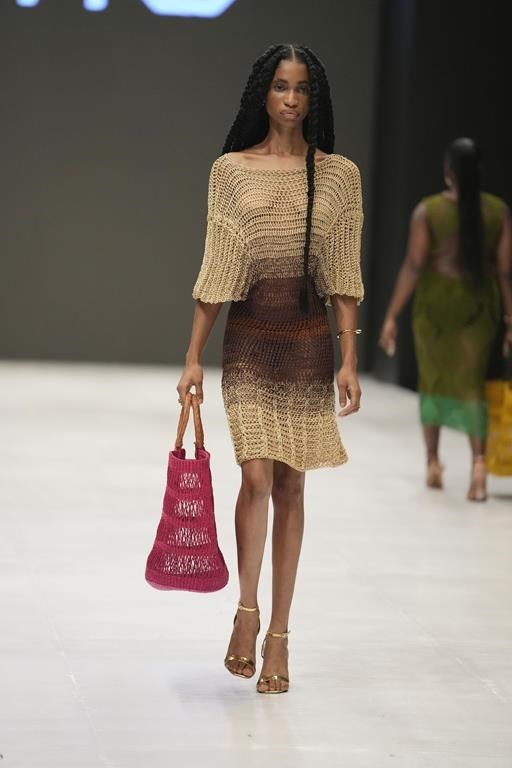ABUJA, Nigeria (AP) — Africa’s fashion industry is growing rapidly to meet local and international demand but inadequate investment limits its potential, UNESCO said Thursday in a report released during Lagos Fashion Week.
Currently valued at $15.5 billion worth of exports annually, the earnings from the continent's fashion industry could triple over a decade with the right investment and infrastructure, according to UNESCO Director-General Audrey Azoulay, who launched the organization’s first report on fashion in Africa in Nigeria’s economic hub of Lagos.
With a young population of 1.3 billion people set to double by 2050, the continent’s fashion industry has also proven to be both “a powerful lever for the promotion of cultural diversity (and) also a way to empower young people and women,” said Azoulay.
Across the continent, fashion continues to grow on various fronts – including in movies and films – in the form of textiles, garments as well as accessories and fine crafts, all with a long history of prestige and symbolic of the African culture.
The demand for African fashion brands is also spurred by the growth in e-commerce, the UNESCO report noted.
Africa leads mobile device web traffic in the world, according to the U.S. International Trade Administration. That has opened more market opportunities such that across Nigeria, for instance, young people on social media are steadily opening fashion brands.
“Africans want to wear Africa. It’s really beautiful to see because it hasn’t always been like this,” said Omoyemi Akerele, who founded the Lagos Fashion Week in 2011 to encourage the patronage of Nigerian and African fashion. “But fast forward, a decade after, that’s all people want to wear."
Featuring a mix of designers from across the continent, the annual fashion show celebrates — and provides a market for — local brands mostly highlighting African culture and crafts in various colours and styles.
In Nigeria and other parts of Africa, young fashion designers are hungry for success and are taking over the global scene, said the UNESCO director-general.
“A new breed of young designers is causing a stir in the international scene, reinventing the code of luxury while at the same time reconciling them with the demands of sustainable, local fashion and heritage," she said.
One such designer at the Lagos Fashion Week, Ejiro Amos-Tafiri, said she uses her brand to tell African stories while celebrating “the sophistication, class and uniqueness of every woman.”
“With more exposure, people are coming to realize that there is a lot of culture in the Nigerian culture, particularly in the fashion industry,” she said. “So Africa is really the next frontier (for the fashion industry).”
___
Associated Press journalist Dan Ikpoyi in Lagos, Nigeria contributed.
Chinedu Asadu, The Associated Press




